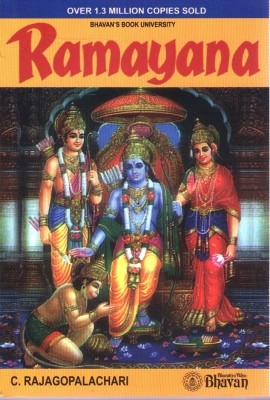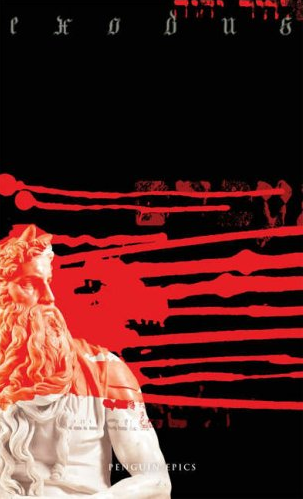I'm in Ireland! And I haven't made much progress on Proust, I'm afraid - been too busy finishing other books, including my friend Mark Chaiken's dissertation for our creative writing program. (Trippy heaven and hell cosmic apocalypse novel? Yessiree.)
I'll just take this opportunity to dwell on another book I've recently finished:
This is a short but fairly comprehensive 1957 retelling of the Ramayana legend - Rajagopalachari was a Tamil scholar who was also well versed in the Sanskrit classics: as such he's able to detail at points what happens in Valmiki's Ramayana and then compare it with Kamban's Ramavataram and Tulasidas's Sri Ramacharit Manas, while also dropping comment on modern interpretations of the characters. I believe the chapters were first published serially in a magazine - there's an avuncular voice here, as if he's a grandfather seeking to educate you as well as entertain you, and also to uplift you spiritually.
And yes, he is quite religious. He goes on about the incomparable glory of Rama with no sense of irony or restraint - though he does purposefully leave out the final sequence of the story, wherein Rama banishes Sita for supposed impurity, as he cannot reconcile this cruelty with the character of one so great. (Turns out that Valmiki didn't include it in his version, either. Rajagopalachari does concede that the story may predate Valmiki though... His take on the inviolate divinity of the texts themselves is a little puzzling.)
This book was my constant companion when backpacking through Greece, which made for some pretty crazy on-the-spot musings on comparative mythology - ever notice how the trope of the sinful city brought down by noble barbarians pops up in three different world mythologies: Hindu, Greek and Hebrew? Lanka is burnt up in the Ramayana as punishment for Ravana's abduction of Sita; Troy is decimated in the Iliad and the rest of the Trojan War Cycle because of Paris's abduction of Helen; Egypt's capital is brought down in Exodus because of the Pharaoh's refusal to let his Jewish slaves go.
I got all moody at one point and thought about Singapore's sins, and how we ought to be brought down for our abuses of the rights of migrant workers and prisoners. How we're all rich and civilized, and some of us are even fundamentally good, but the sins of our rulers will be the downfall of us all...
But then I finished the book and everything was better. Hare Rama!
Seriously, this is a good edition for beginners. Plus, it's printed in India for Indian readers, so it's cheap. :)



No comments:
Post a Comment